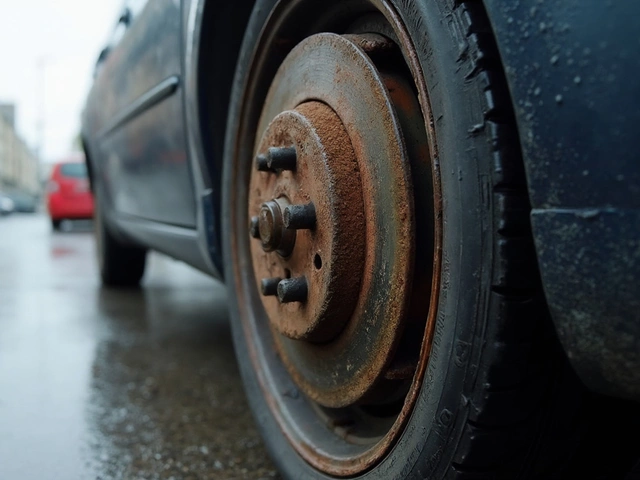Driving Risks: Spot & Avoid Common Car Safety Hazards
Every time you get behind the wheel, hidden dangers are waiting to catch you off guard. From a bent suspension to a worn brake pad, the smallest issue can turn a routine trip into a nightmare. The good news? Most of these risks show clear signs, and fixing them early saves money, time, and lives.
What Everyday Driving Risks Look Like
Think you’re good to go when the check‑engine light flickers? Not always. A squeaky rear brake pad, a sticky clutch, or a bent suspension can all whisper warnings before they scream. For example, a bent suspension often causes uneven tire wear, a pulling sensation while steering, and a clunking noise over bumps. Ignoring that clunk can lead to wheel misalignment, poor handling, and even a loss of control on slippery roads.
Another sneaky risk is a bad clutch. When the clutch starts to burn, you’ll smell a faint, acrid odor and notice slipping when you accelerate. Driving with a slipping clutch reduces power transfer, forces the engine to work harder, and can eventually snap the clutch disc, leaving you stranded.
Quick Checks to Catch Risks Early
Before you hit the road, run through these three quick checks. First, listen for any unusual noises – squeaks, clunks, or grinding are red flags. Second, feel the steering and brakes; any pulling, vibrations, or soft brakes indicate wear. Third, inspect visible parts: look at tire tread for uneven wear, check brake pads for thickness, and make sure suspension components aren’t bent or leaking fluid.
If you notice any of these symptoms, it’s time to book an appointment with a trusted garage like Northwich Tyres Centre. Their experts can diagnose a bent suspension, replace rear brake pads safely, or advise whether your clutch needs a rebuild before it quits completely.
Remember, driving risks aren’t just about big, expensive parts. Simple things like a cracked windshield wiper or a clogged fuel injector can reduce visibility or throttle response, raising the chance of an accident. Keep your wipers in good shape, replace them in pairs for balanced performance, and test your fuel pump regularly to avoid sudden stalls.
Staying ahead of these risks doesn’t require a mechanic’s degree. A few minutes of observation, a quick sound check, and a regular service schedule keep your car running smoothly and your journeys safe. Next time you’re about to leave the house, pause, listen, and look – you might just catch a problem before it becomes a costly repair.
Driving is a privilege, not a guarantee. By spotting the signs early and acting fast, you protect yourself, your passengers, and your wallet. Keep these tips handy, and enjoy the road with confidence.
 27 July 2025
27 July 2025
Can You Drive With Bad Suspension? Risks, Signs, and What Happens Next
Wondering if you can drive with bad suspension? This deep dive breaks down what bad suspension feels like, real-life risks, warning signs, and what to do next.
 17 January 2025
17 January 2025
Understanding the Risks of Driving with Low Engine Oil
Driving with low engine oil can have serious implications for your vehicle's health and performance. This article delves into the importance of maintaining proper oil levels, the potential consequences of neglecting this crucial aspect of car maintenance, and provides practical tips for ensuring your engine remains well-lubricated. Learn how to recognize warning signs and adopt best practices to keep your vehicle running smoothly.
Latest Posts
Tags
- car maintenance
- engine oil
- spark plugs
- brake pads
- engine performance
- vehicle maintenance
- spark plug replacement
- windshield wipers
- fuel pump
- suspension parts
- clutch replacement
- clutch kit
- car performance
- oil change
- air filters
- car suspension
- car radiator
- exhaust systems
- engine misfire
- fuel pump failure






0